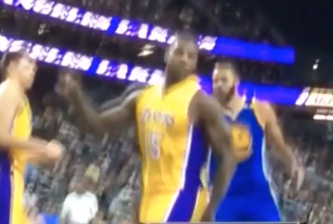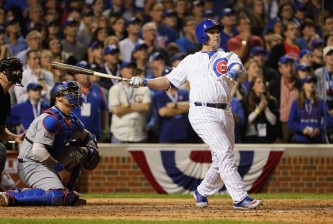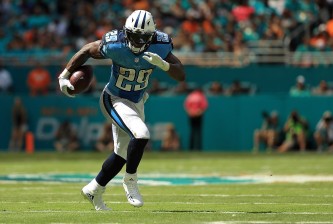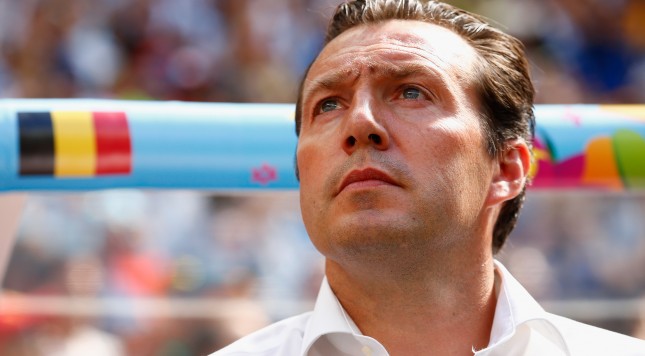With the Euro 2016 semifinal matches due to begin on July 6, we’ve seen some of the best football the European stage has to offer. While the players have had a lot to do with their teams’ success, the managers have contributed mightily to these efforts. However, there are some teams who have underperformed at the Euros largely because of the inability of their managers to execute successful gameplans. In a business that is predicated upon wins (and losses), let take a look at these managers and see what went wrong.
5) Leonid Slutsky (Russia) – With Russia set to host the 2018 World Cup, it would seem imperative to have a good showing in the Euros. Enter Leonid Slutsky, current manager of CSKA Moscow, an elite team in the Russian Football Federation. Interestingly enough, he was able to keep his “day job” at CSKA while his national team contract was to expire at the culmination of the Euros. This might elicit a lack of motivation from a man whose playing career as a goalkeeper was cut short at the age of 19 from falling out of a tree to rescue a cat. Rather than develop a mix of players while forming his squad, he selected the oldest players for the tournament assuming their experience would carry them through. Throughout the tournament, Russia looked disorganized and unmotivated. There were injuries to key players such as Alan Dzagoev and Igor Denisov that were contributing factors. But Slutsky replaced them with Roman Neustadter and Aleksandr Golovin, who were so ineffective they both had to be replaced at half-time against Wales. The play of striker Aleksandr Kokorin was dismal, while omitting Aleksandr Kerzhakov from his squad was yet another mistake. After three group stage matches without a win, Russia was eliminated from the Euros. We say Dasvidanya to Mr. Slutsky as he quickly resigned his national team post.
4) Marcel Koller (Austria) – With Das Team FIFA-ranked 10th, this was a squad that was certainly expected to play beyond the group stage in this year’s Euros. Playing in a weaker group, they managed just one tie in three matches and amassed a goal differential of -3. Keen to show who was in charge after a 2-0 loss to Hungary, Koller began his second game by benching his best striker Marc Janko and his best playmaker, Zlatko Junuzovic. Austria’s miseries were compounded by his strange decision-making, including the sidelining of Janko, who played just 110 minutes in France. In particular, Koller hampered his greatest talent, David Alaba, by playing him out of his natural position. The Bayern Munich left-back usually lines up in midfield for his country, but was muted as a central attacking midfielder in the draw against Portugal, when he was substituted after 65 minutes. Still stranger, Alaba was used as a false nine (decoy center- forward) in their defeat to Iceland, when he was largely ineffective. Choosing Aleksandar Dragovic as Austria’s penalty-taker in that game hardly helped as the defender hit the post, denying Austria a much-needed goal at a critical point of the game. Going forward into the World Cup qualifiers, Mr. Koller should excel as Austria is in a fairly easy bracket, but most analysts said the same thing in the Euros.
3) Vicente del Bosque (Spain) – After being eliminated from the group stage in the 2014 World Cup, La Roja failed to learn from those mistakes. Spain faced two teams who deployed a back three in Netherlands and Chile and lost to both. Fast forward two years and they were again victimized by Antonio Conte’s Italy, playing 3-5-2. Spain was too predictable, and Conte wisely aligned his game plan accordingly. This was further exacerbated by the retirements of Xavi and Xabi Alonso, key components to the del Bosque engine. The manager also fielded the same starting 11 in each of their four games in France. Even though Spain had already qualified to advance after two games of group play in the Euros, he used all of his starters against Croatia, producing the tired legs that were witnessed against Italy later on. Substitutes Koke was only given 19 minutes of football and Thiago Alcantara given 26. With more time on the pitch, perhaps either (or both) would have made a difference. Many thought the match should’ve started with Bruno Soriano alongside Sergio Busquets, giving Spain two holding midfielders. Of course, off-the-field discourse between del Bosque and goalkeeper/team captain Iker Casillas proved to be an additional detriment, helping the sixth-ranked FIFA team to crash out of the Euros in their first knock-out game. While del Bosque’s contract with Spain ends July 31, he wisely resigned his post the day following the loss to Italy. It seems that the Spanish Federation was one step ahead of his resignation, however, as they named Joaquin Caparros their new manager almost immediately after his resignation.
2) Roy Hodgson (England) – At the age of 68, after managing 16 teams in eight countries beginning in 1976, it is sad to think that the Three Lions’ defeat to Iceland will likely be Hodgson’s legacy. Along the way, England lost the defensive solidity they displayed under Hodgson at Euro 2012. They identified the long throws of Iceland’s Aron Gunnarsson as a threat but were not sufficiently organized on their back line to defend against them. Hodgson preferred to play 4-3-3 while selecting a squad containing an under-performing striker while pressing a range of others into service as “wing men”. Selecting Jack Wilshere, who had played just 141 minutes for Arsenal this season, proved to be a major blunder, as was his decision to make six changes against Slovakia in their final group stage match. England drew in that game, earning them a more difficult path forward in the Euros. Of course, their incompetence against Iceland precluded any further competition on their part. Hodgson resigned immediately following the loss to Iceland, as opposed to a pre-empted termination by the English FA. After a brief time on the job, new Manchester United manager Jose Mourinho said that team captain Wayne Rooney will never play the number 6 position, that of a defensive midfielder. “The Special One” was quick to see the proper position for Rooney. Unfortunately for Roy Hodgson, he was never able to make those distinctions, and the England coaching carousel will continue.
1) Marc Wilmots (Belgium) – Arguably the greatest managerial failure in France with a FIFA-ranking of second in the world, Belgium was second best against both Italy and Wales. Playing in a group against Italy, Republic of Ireland and Sweden, Belgium was virtually assured of advancing beyond the group stage of play. But for a team this talented waiting to advance to the final four of a major tournament for 30 years, the Euros can only be seen as an outright failure for Wilmots and Belgium. While the Belgian FA is currently holding talks to decide the future of their manager, the players are less patient. Goalkeeper and Chelsea star Thibaut Courtois’ analysis of the Wales defeat — “same tactics, same problem” — indicated how lessons were not learned. Wilmots failed to demonstrate the strategic sense to adapt to the play on the pitch, and his players failed to respond with determination and spirit when they trailed. Their inadequate set-piece marking, showcased when Ashley Williams headed in Wales’ equalizer, exposed their lack of organization. Wilmot’s choice of Marouane Fellaini as an attacking playmaker against Italy was a huge blunder. Also, the way that various “star” Belgians such as Thibaut Courtois, Romelu Lukaku and Yannick Carrasco underperformed in the tournament reflected poorly on the manager. For a team with a combined payroll of $435 million who are touted as the cornerstone of the Belgian “Golden Era” of football, it would seem that the pieces are in place for a successful run at glory. But after managing the team since 2012, it would appear as if Wilmots will need to be plying his trade elsewhere for such glory to be fully realized.























